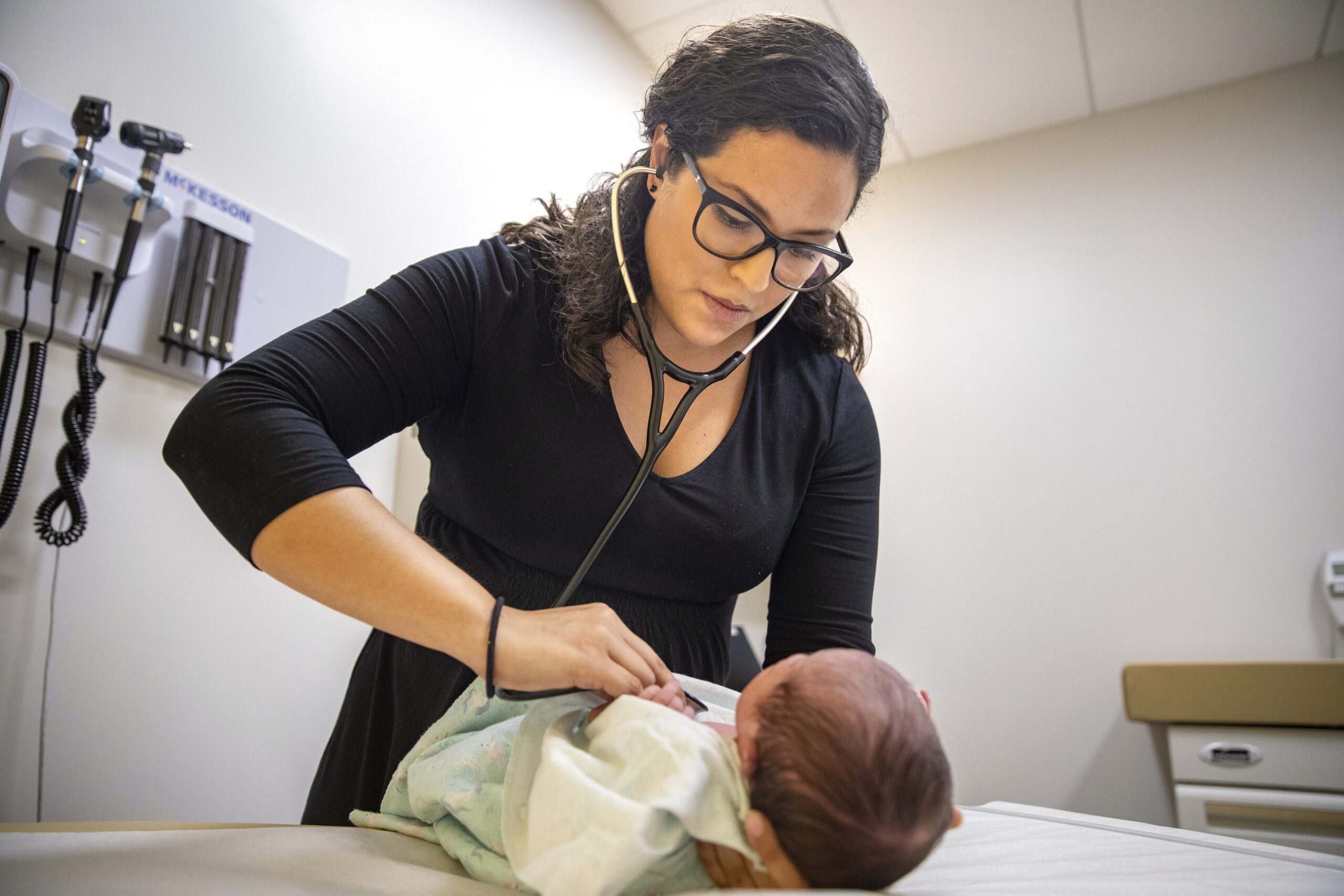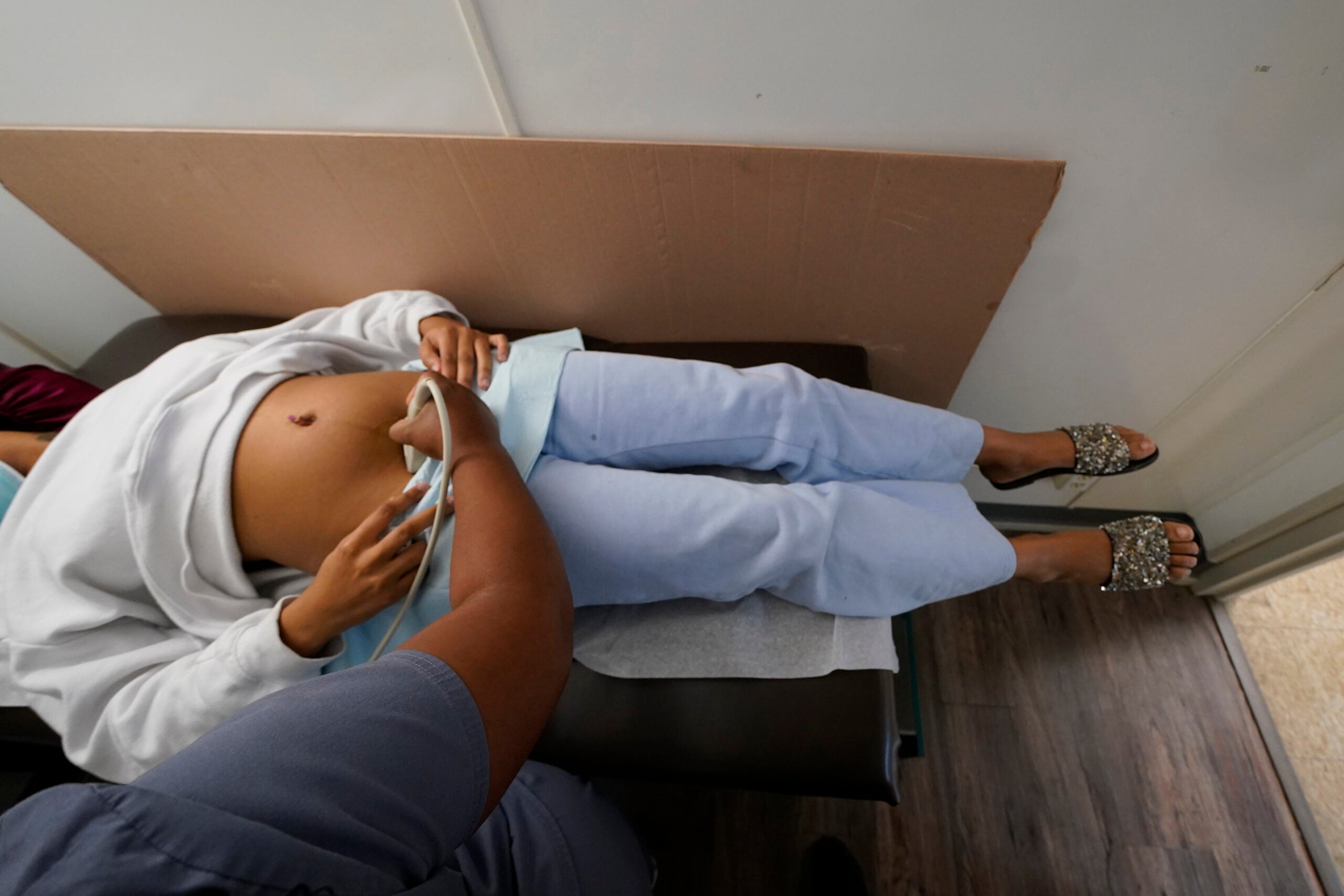Legislation introduced by Wisconsin Democrats would expand private health care benefits for new moms and babies. But its future is uncertain before the Republican-controlled state Legislature.
The bill was introduced one week after Republican lawmakers on the Joint Finance Committee voted down a $34.5 million provision in Democratic Gov. Tony Evers’ proposed budget that would have extended Medicaid coverage for mothers for up to a year after giving birth.
Meanwhile, a similar but bipartisan effort to extend Medicaid coverage for postpartum mothers is making its way through the state Legislature and has been referred to committees in both the Assembly and Senate.
News with a little more humanity
WPR’s “Wisconsin Today” newsletter keeps you connected to the state you love without feeling overwhelmed. No paywall. No agenda. No corporate filter.
But instead of focusing on expanding Medicaid in Wisconsin, the Democrats’ Senate bill would focus on private insurance companies. They would be required to cover maternity, postpartum and newborn care at no, or limited cost, with some exceptions. Those exceptions include liability insurance, credit-only insurance and automobile medical payment insurance, among others.
Senate Minority Leader Melissa Agard, a Democrat, is a lead sponsor of the legislation. She said it’s aimed at improving maternal and infant outcomes in Wisconsin — which are some of the worst in the nation.
“This bill would basically enshrine federal protections and coverage from the Affordable Care Act into Wisconsin law,” Agard said. “There should be no discrimination in health care in the state of Wisconsin, and certainly, maternal and infant success in the state of Wisconsin absolutely needs to be better.”
For years, the U.S. has had the highest maternal mortality rate — pregnant people who die giving birth or the weeks after — compared to other wealthy nations. But the rate surged by 40 percent in 2021 over the previous year, according to a report from the National Center for Health Statistics.
In Wisconsin more than 2 out of 3 pregnancy-related maternal deaths occur postpartum. Black mothers in the state are five times more likely to die than white mothers.
Agard called those disparities “egregious” and slammed Republican colleagues for not signing onto the bill, saying every Wisconsinite should have access to high-quality health care, especially moms and babies.
“That is a priority that I would think that the party who beats the drum on family values should be able to get around,” she said.
In Wisconsin, health insurance companies must provide coverage the moment a child is born, according to the Wisconsin Office of the Commissioner of Insurance. That coverage includes treating congenital defects and birth abnormalities as an injury or sickness under the policy.
Every group disability insurance policy that provides maternity coverage is already required by law not to exclude anyone eligible for coverage.
Under current law, mandated benefits for maternity coverage outside of Medicaid only apply to group insurance. This bill would change that by requiring insurance commissioners to provide maternity and newborn care benefits at no or limited cost, according to the nonpartisan Legislative Reference Bureau. The bill also includes a provision stating that if a maternity or newborn care benefit is subject to mandated coverage elsewhere under a state law, the person receiving insurance must receive comprehensive care.
Under current law, pregnant women with family incomes up to 300 percent of the federal poverty level qualify for extended Medicaid benefits for at least 60 days after they give birth. A provision added to the state budget last year sought to increase that to 90 days, but it’s still awaiting approval from the U.S. Department of Health and Human Services.
Assembly Speaker Robin Vos, a Republican, has voiced his opposition to expanding Medicaid coverage for postpartum care.
“I don’t think it’s right to give it away for free, to be honest. I think everybody, when you make a choice to have a child — which I am glad that people do — it’s not the taxpayers’ responsibility to pay for the delivery of that child,” Vos said at a Wisconsin Health News luncheon on June 13.
Emily Kittell is the maternal and infant health initiatives manager for the Wisconsin branch of the advocacy group March of Dimes. She said research shows that in Wisconsin, nearly 97 percent of maternal mortality, or death caused by pregnancy-related issues, are preventable. And mental health issues contribute to a large number of maternal deaths.
“That means that right now, we’re not doing a good job getting those pregnant people the health care they need,” she said. “We shouldn’t be seeing individuals dying due to treatable complications, including mental health issues.”
In the U.S. 36 states, including conservative-leaning ones, have expanded coverage to 12-months after a birth. Kittell said that makes Wisconsin an outlier.
Agard agreed that expanding health care for new moms and babies shouldn’t be a partisan issue.
“Every woman in Wisconsin deserves the highest quality of health care, and affordable health care, during their pregnancy and post-pregnancy,” she said.
At this point, no groups have registered for or against the bill. The proposal has at least 30 Democratic co-sponsors and no Republicans. Similar bills introduced in 2019 and 2021 failed to pass both the state Senate and Assembly.
Wisconsin Public Radio, © Copyright 2026, Board of Regents of the University of Wisconsin System and Wisconsin Educational Communications Board.





